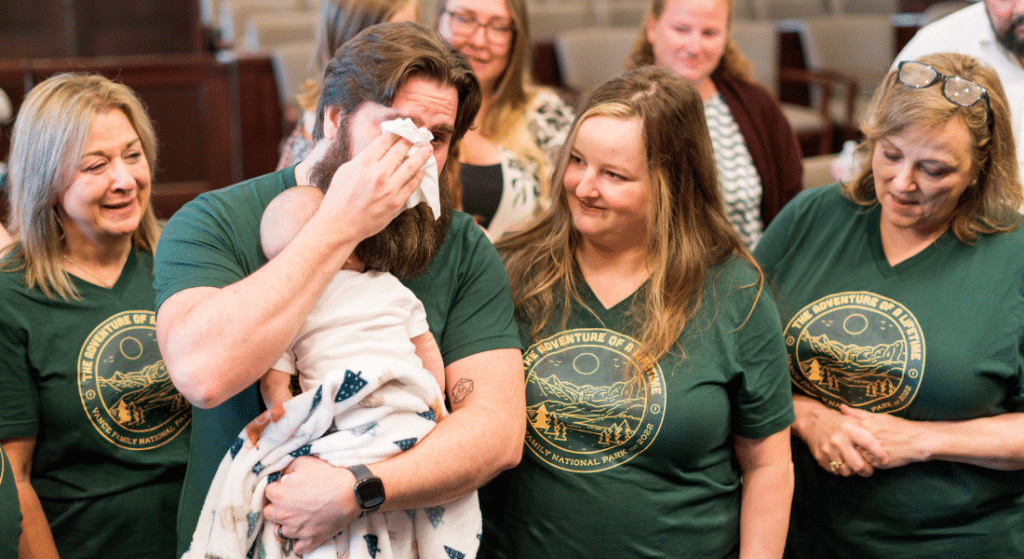Emile DeWald overcame so many fertility challenges to conceive at age 36, it’s no surprise her baby girl beat the odds herself, born 17 weeks premature and weighing just over 1 pound.
Poppy Dove DeWald was born in March at just 22 weeks, before her mother’s third trimester — one of the smallest preemies ever delivered at Methodist Richardson Medical Center. After graduating from the NICU 117 days later in good health, her story is nothing short of extraordinary.
“She’s a miracle,” says Emile, who lived in Garland but recently moved back home to Central Arkansas. “The fact that she has no delays, needs no feeding tube, nothing but a prescription, really speaks to the power of God and the Methodist team.”
DIAGNOSED WITH PCOS
When Emile and her husband, Kyle, began trying for a family, their fertility journey was anything but easy. She was a teenager when she was diagnosed with polycystic ovary syndrome (PCOS), a hormonal condition that can make it difficult to get pregnant and carry a baby to term.
“We saw a fertility specialist for years, and nothing worked,” she says. “I had weight-loss surgery, hoping it would help me get pregnant, and did three rounds of fertility treatments. Finally, I just told my husband, ‘If we’re not pregnant by the age of 35, I’m done.’”
After years of trying, two pink lines finally gave Emile the result she’d been praying for. Most of her pregnancy was peaceful until month five, when complications began.
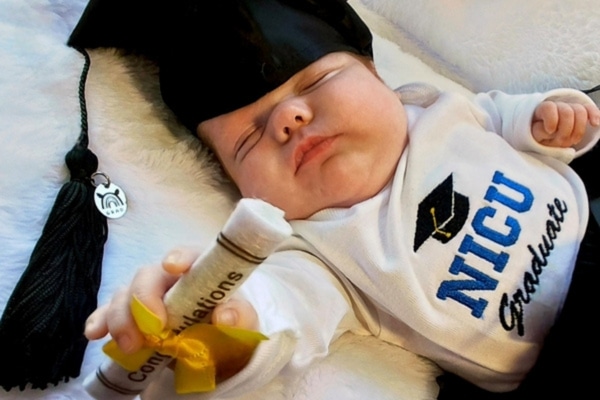
Poppy got a graduation cap and onesie to celebrate her release from the NICU.
In March 2025, Emile had been working all day when she felt an intense pressure in her stomach. The sight of blood in the bathroom was a red flag.
“I told my husband we needed to go to the emergency room,” Emile says.
When she arrived at the hospital, nurses discovered Emile was already fully dilated, at 10 centimeters. Her baby’s delivery was still days away, and doctors determined she would need an emergency C-section.
“I was in labor for three days,” Emile says. “I was so scared that my baby wasn’t going to make it.”
From first-time moms to high-risk pregnancies, we deliver family-centered support every step of the way. Visit MethodistHealthSystem.org
IN LABOR FOR 3 DAYS
To her relief, on March 30, 2025, Poppy entered the world and was intubated immediately because her lungs were not developed enough for her to breathe on her own.
“Poppy was an extremely premature preemie,” says her NICU doctor, Lilian St. John, MD, neonatologist on the medical staff at Methodist Richardson. “The struggles that she had were expected.”
She had a 10% to 20% chance of survival, but the NICU team and Poppy herself would play a role in raising those odds.
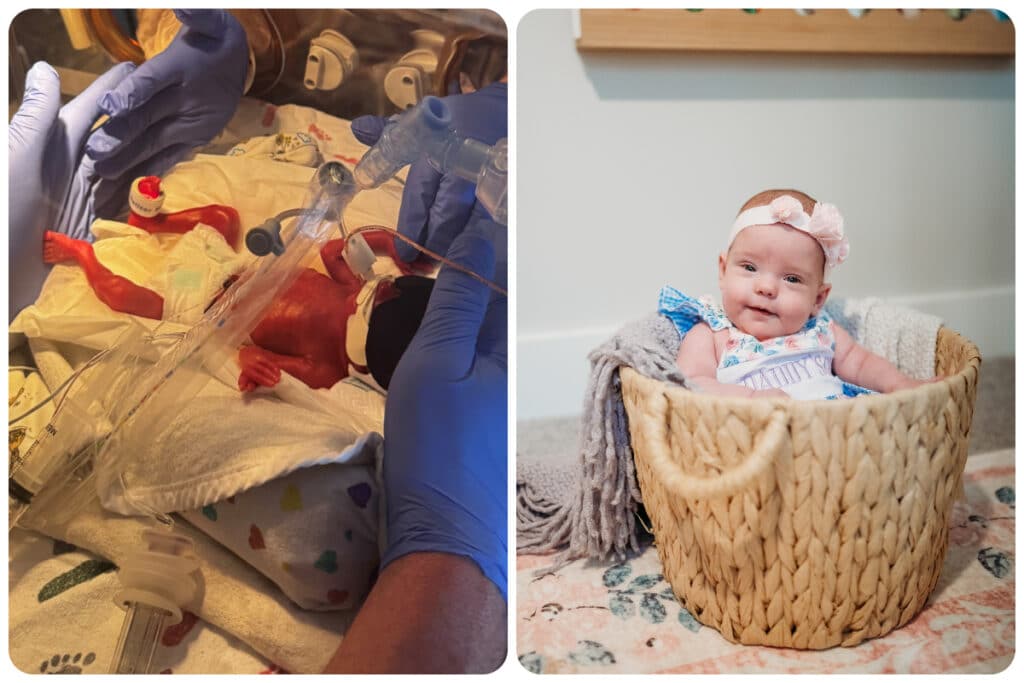
Poppy barely filled one of her parents’ hands at birth, but now she’s much more than a handful.
THE FIGHT FOR HER LIFE
Many neonatologists refer to the first hour of life as the “golden hour,” a critical window to begin treatment to give premature infants their best chance of survival. Even in those early moments, Poppy was proving to be a fighter.
“For our tiny babies like Poppy, every second counts,” she says. “She needed a ventilator to breathe for the first six weeks of her life. She also required several blood transfusions since she had an estimated 2 ounces of blood in her whole tiny body.
To receive medications and fluids, Poppy received umbilical and a peripherally inserted central catheter, also known as a PICC line. She was also at higher risk for infection because she was born before when mothers typically transfer antibodies to their babies.
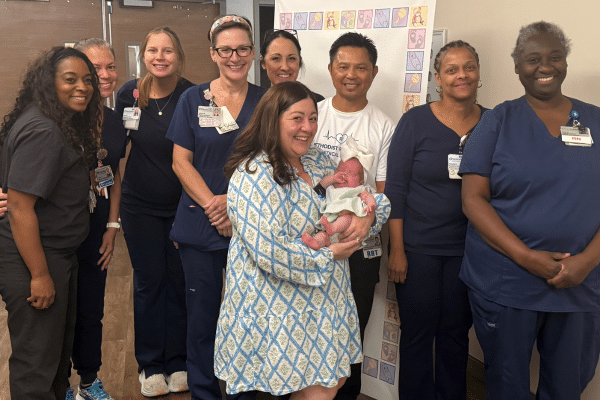
Emile reunited with the NICU staff before taking Poppy home to Arkansas.
“Since Poppy missed out on her last trimester, she was more vulnerable,” Dr. St. John explains. “She was treated for congenital sepsis and pneumonia and required nearly daily blood tests during her first month.”
Despite the challenges, Poppy made remarkable progress. After 117 days in the NICU, Poppy finally went home to her family.
“We were all so proud of Poppy when she left,” Dr. St. John says. “Her care was truly a team effort, starting with the obstetrician, continuing with a team of neonatologists, speech, occupational, and respiratory therapists.”
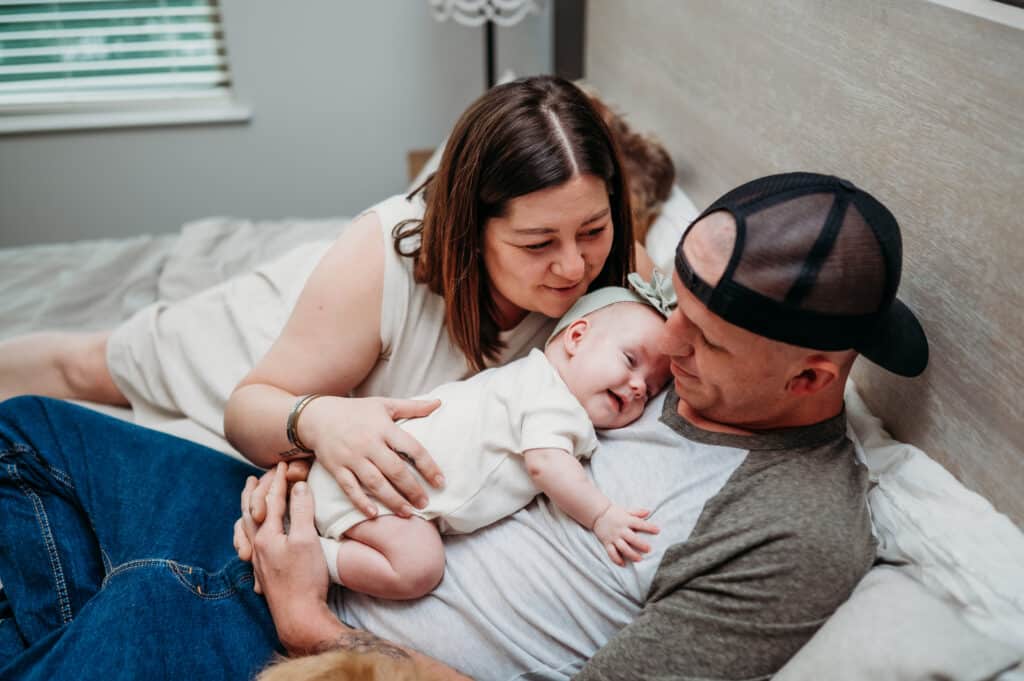
Happy and healthy, Poppy snuggles with Emile and Kyle at home.
HOME AT LAST
Now that Poppy is thriving at home, Emile and Kyle are soaking up every moment with their daughter.
“The first day we took her home, I was so scared,” Emile admits. “But she fit right in; it was like she knew she was home.”
Emile credits the team at Methodist Richardson for their compassion and care throughout the journey.
“Everyone was so kind and caring,” she says. “You could tell they loved what they did, and I will never forget them.”


